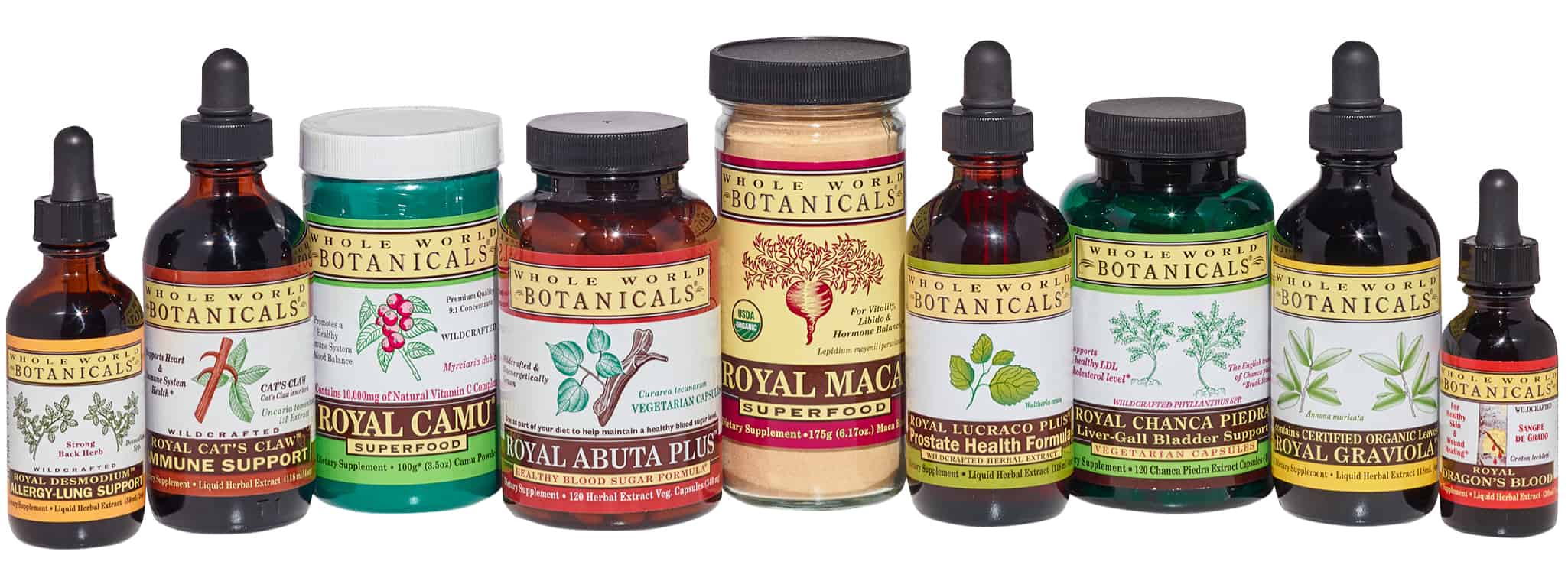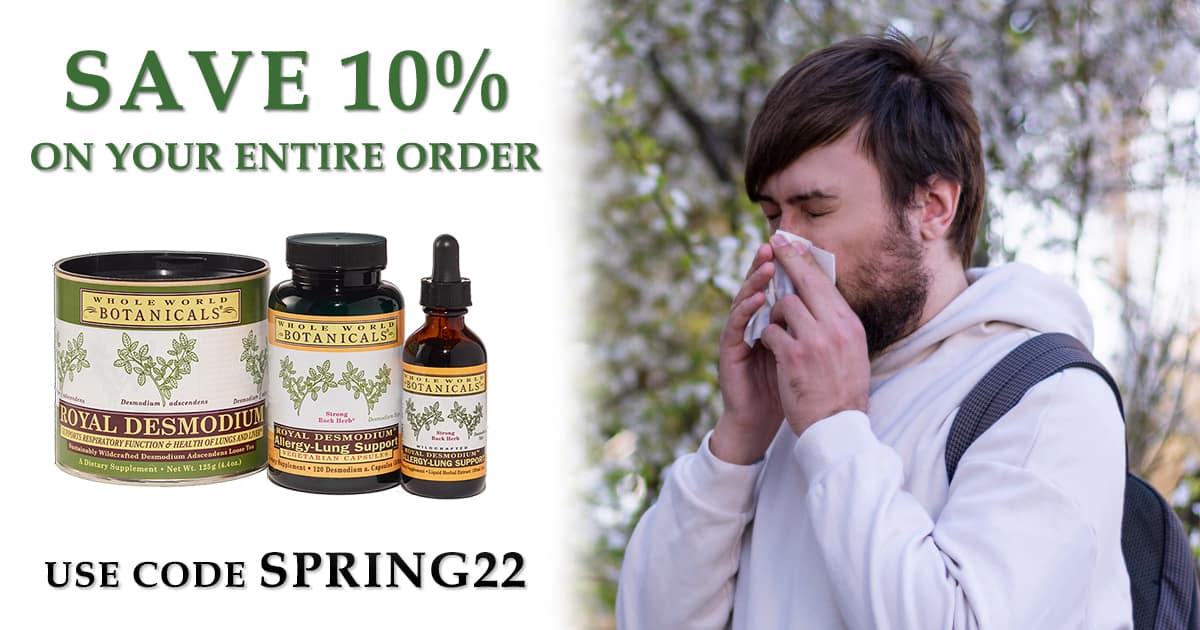The Good News About Maca!
Viana Muller, Ph.D.
I’m always genuinely grateful when researchers release new findings about Maca (Lepidium meyenii/peruvianum), the Peruvian cruciferous vegetable known for its powerful hormone-balancing properties. Since Whole World Botanicals introduced our Royal Maca® to the U.S. market more than two decades ago, we’ve focused on raising awareness of the incredible health benefits of this potent superfood.
Researchers recently published two studies on the effectiveness and safety of Maca. We now have even more scientific proof of what we’ve always known: Maca works! I’d like to share some highlights from their findings.
One study, published in November of 2022 in Phytomedicine Plus1, systematically reviewed two decades of Maca research and conclusively found that Maca is effective for a broad range of health issues. You can read the research online, but according to this critical study, here are the health issues that Maca can help fully or partially relieve:
- Sexual dysfunction
- Vasomotor menopausal symptoms (hot flashes, night sweats)
- Genitourinary menopausal symptoms (dryness, burning, irritation, lack of lubrication, discomfort with intercourse, urinary urgency)
- Sperm production, including count, volume, and motility
- Prostate enlargement and prostate health
- Erectile dysfunction
- Hormonal balance (estrogen, progesterone, testosterone, follicle-stimulating hormone (FSH), luteinizing hormone (LH), sex hormone-binding globulin (SHBG), insulin, and cortisol)
- Fertility issues
- Bone health issues, low bone density
- Elevated blood sugar
- Adrenal dysfunction, cortisol imbalance
- Thyroid dysfunction
- Memory impairment
- Depression
- Anxiety
- Neurotransmitter levels (serotonin, noradrenaline, and dopamine)
- Physical endurance
- Elevated blood pressure
- Elevated cholesterol and triglycerides
- Excess body weight
- C-reactive protein/inflammation
Another study, published in the July 2023 issue of the World Journal of Men’s Health2, looked specifically at Maca’s benefits for men with “late-onset hypogonadism” (LOH), the medical term for andropause, or male “menopause.” (You can read it online here.) LOH/andropause is characterized by symptoms of low testosterone, including loss of libido, erectile dysfunction, loss of muscle mass, increased body fat, osteoporosis, depressed mood, decreased vitality, and increased sweating, among others. The standard treatment for LOH is testosterone replacement therapy, which can increase the risk of prostate cancer, heart attacks, and strokes.
Previous clinical studies have reported various effects of Maca, such as improved fertility, increased energy, improved memory enhancement, improved bone density, and reduced blood sugar levels. But this double-blind, placebo-controlled study was the first clinical trial to use research instruments to measure men’s symptoms accurately.
In this study, researchers found that men taking Maca had noticeable symptom improvements at four weeks and significant improvements after 12 weeks. No side effects were reported, and the men experienced no detrimental changes in their blood chemistry. Specifically, the improvements included:

- Increased ability/frequency to perform sexually
- Increased libido
- Increased number of morning erections
- Improved sense of general well being
- Increased energy and vitality
- Increased motivation
- Improved mood, less depression
- Reduced irritability, moodiness, and aggressive feelings
- Reduced nervousness and anxiety
- Reduced joint pain and muscle aches
- Reduced sweating and hot flashes
- Improved sleep, fewer sleep problems
- Increased muscle strength
- Improved beard growth
Interestingly, both the Maca-treated and placebo groups had no measurable change in total or free testosterone levels. It’s clear that Maca doesn’t change actual hormone levels. Maca is remarkable because it helps the body achieve better hormone balance without taking any hormones. Instead, the phytochemicals in Maca stimulate the liver to make more insulin growth factor 1 (IGF-I). Increased IGF-1 levels support the entire endocrine system by helping increase the number of hormone receptors – including estrogen, progesterone, and testosterone receptors. More receptors mean more hormones can reach the cells, tissues, glands, and organs in the body where needed.
A note: Men who take our Whole World Botanicals Royal Maca® for Men – or Super Royal Maca® for Men with DIM – experience dramatic improvements in their symptoms when taking our recommended daily dose of 2 to 6 capsules (1 to 3 grams of Maca) daily rather than the higher 5-gram dose used in the study.
Why do we have similar results with a lower dose? I have a theory. While the study doesn’t specify the source of the Maca used in the research, the study was conducted in Korea. The researchers likely used a regional strain of Maca that wasn’t from Peru. Our Royal Maca is organically grown and harvested in its native habitat of the Peruvian Andes – and then properly heated and prepared. Both the soil it’s grown in and the traditional process used make our Royal Maca significantly more potent than much of the Maca on the market.
Whole World Botanicals Royal Maca
Whole World Botanicals has nine Royal Maca products to meet your needs.
- Royal Maca® Powder
- Royal Maca® Vitality-Libido-Balance Capsules
- Royal Maca® for Perimenopause
- Royal Maca® for Menopause
- Royal Maca® Plus for Women with DIM
- SHE™ Mood & Hormone Balance Capsules
- Royal Maca® for Men
- Super Royal Maca® for Men with DIM
- Royal Maca® Bone & Hormone Support
All of our Royal Maca products contain the same organically grown, gelatinized Peruvian Maca. Some products include additional co-factors and nutrients and specific dosing instructions to make the product especially effective.
SAVE ON ROYAL MACA!
To make it even easier to get started, you can get 10% off our already discounted online price for any Royal Maca product, through July 31st!
 WHICH MACA IS RIGHT FOR YOU?
WHICH MACA IS RIGHT FOR YOU?
Are you confused about which Royal Maca will best meet your needs? Read Part 2 of this article: How to Choose the Right Royal Maca for You!
References
(1) Bower-Cargill, C. et al. A systematic review of the versatile effects of the Peruvian Maca Root (Lepidium meyenii ) on sexual dysfunction, menopausal symptoms, and related conditions. Phytomedicine Plus. Volume 2, Issue 4, November 2022, 100326. https://www.sciencedirect.com/science/article/pii/S2667031322001075
(2) Shin, Dongho et al. Efficacy and Safety of Maca (Lepidium meyenii) in Patients with Symptoms of Late-Onset Hypogonadism: A Randomized, Double-Blind, Placebo-Controlled Clinical Trial. World Journal of Men’s Health. 2023 Jul 41(3): 692-700. https://www.wjmh.org/pdf/10.5534/wjmh.220112























